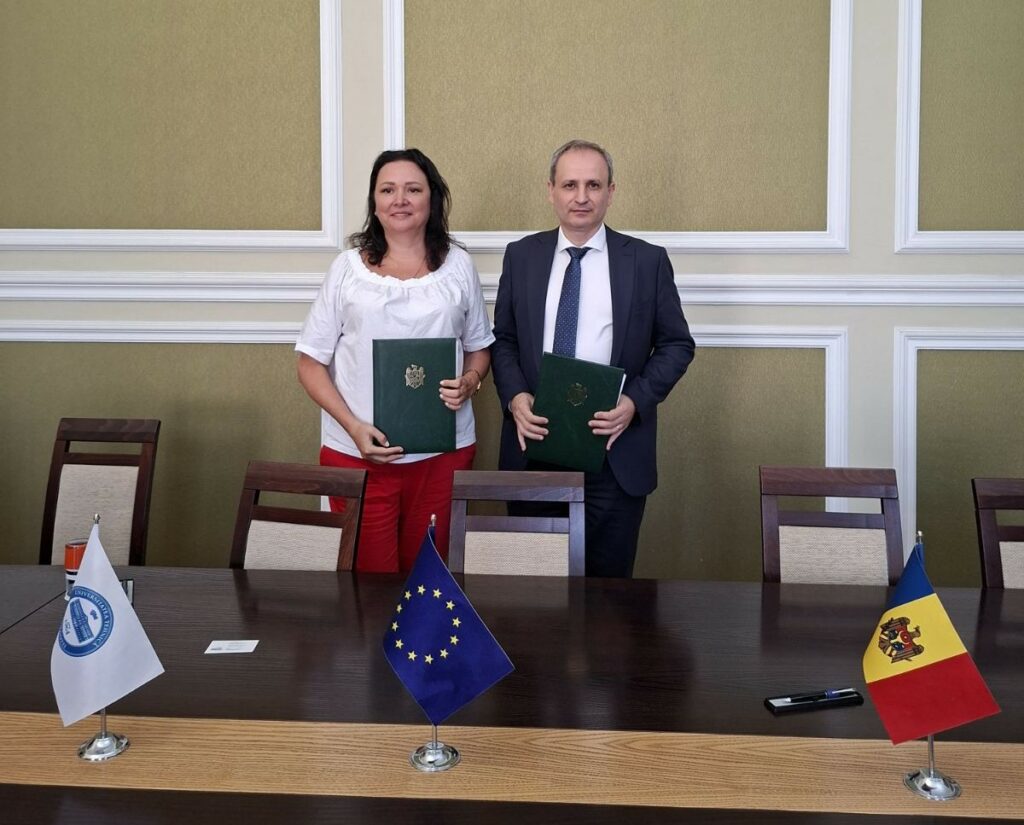The Agricultural and Rural Advisory Center and the Technical University have signed a cooperation agreement
The Agricultural and Rural Advisory Center (CCAR) and the Technical University of Moldova (TUM) have signed a cooperation agreement that opens up new opportunities for the development of agriculture through knowledge transfer, innovative solutions, and the dissemination of applied research results among agricultural producers.

The Agricultural and Rural Advisory Center (CCAR) and the Technical University of Moldova (TUM) signed today a cooperation agreement that opens new opportunities for the development of agriculture through knowledge transfer, innovative solutions, and the dissemination of applied research results among agricultural producers.
The agreement provides for strengthening the efforts of the two institutions in the field of Research–Innovation–Education, with the goal of supporting farmers and rural stakeholders in adapting to market requirements and current challenges. The document includes the exchange of information and the organization of joint events.
Carolina Chiper, Director of the Agricultural and Rural Advisory Center, stated:
“We already have a good collaboration with TUM in several areas—we’ve organized a series of seminars in partnership with the agricultural faculties. Through this agreement, we aim to strengthen and expand our cooperation, especially considering the essential role of science in agriculture. The visits organized for agricultural advisors to the University’s modern laboratories were highly appreciated.”
“We aim to expand cooperation in the agricultural field. We’ve seen similar examples in the United States, where such centers play a key role for farmers. We believe a real partnership with CCAR is possible—whether through the establishment of demonstration plots or through expert support activities. We have the capacity to draft and participate in projects, and in this sense, the partnership with the Center is essential,” said Viorel Bostan, Rector of TUM.
The agreement between the two institutions foresees that CCAR will identify the real needs of farmers and collaborate with TUM to develop a joint action plan. In turn, the University will support this initiative with academic expertise, provide specialists and educational infrastructure, and contribute to integrating innovations into training activities.
